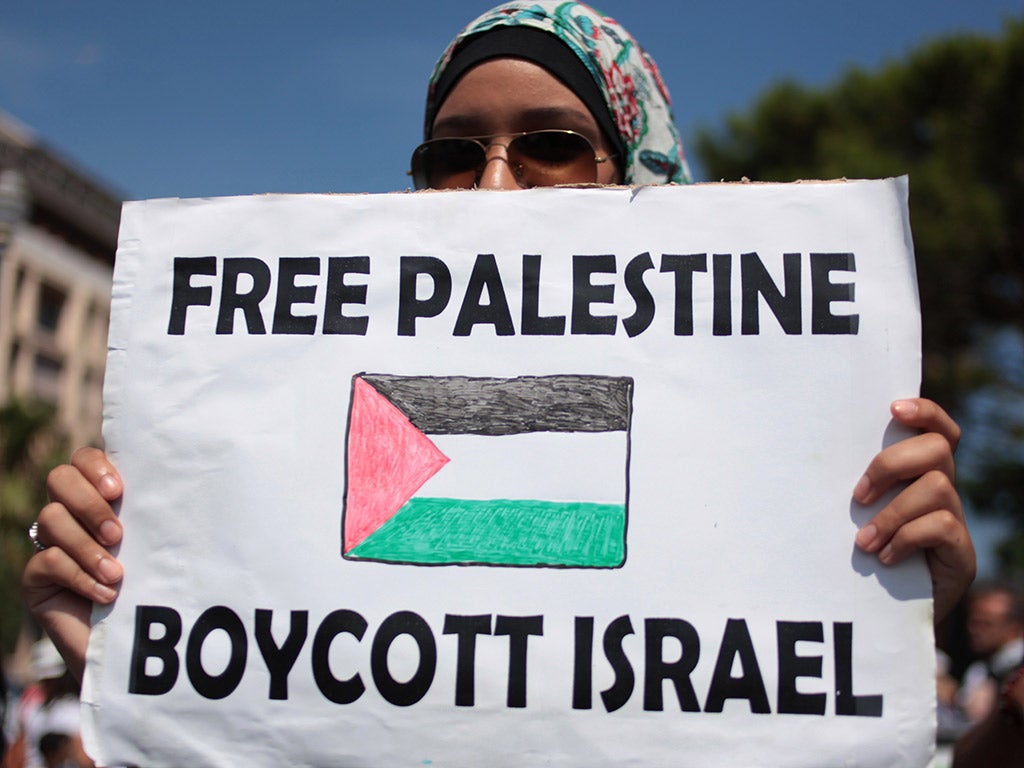Israel boycott ban: Three councils cleared of anti-semitism over Israeli goods boycott
Case against councils described as 'misconceived' while campaigners call ruling 'important victory'

Your support helps us to tell the story
From reproductive rights to climate change to Big Tech, The Independent is on the ground when the story is developing. Whether it's investigating the financials of Elon Musk's pro-Trump PAC or producing our latest documentary, 'The A Word', which shines a light on the American women fighting for reproductive rights, we know how important it is to parse out the facts from the messaging.
At such a critical moment in US history, we need reporters on the ground. Your donation allows us to keep sending journalists to speak to both sides of the story.
The Independent is trusted by Americans across the entire political spectrum. And unlike many other quality news outlets, we choose not to lock Americans out of our reporting and analysis with paywalls. We believe quality journalism should be available to everyone, paid for by those who can afford it.
Your support makes all the difference.Three UK councils have been cleared of anti-semitism by the High Court after they imposed boycotts on Israeli goods, a ruling pro-boycott campaigners have described as an “important victory”.
The charity Jewish Human Rights Watch (JHRW) brought judicial charges against Leicester City Council, Swansea City Council and Gwynedd Council for discrimination, but the claims were dismissed.
All three local authorities had passed motions to boycott any produce coming into the cities from “illegal Israeli settlements in the West Bank, until such time as Israel complies with international law and withdraws from Palestinian occupied territories”.
The move to ban Israeli goods was made by Swansea council in June 2010, and by Gwynedd and Leicester councils in October and November 2014 respectively.
The case against the councils was described as “misconceived” by defence lawyers and failed on an analysis of the facts and applicable legal principles, according to BBC News.
Presiding judge Lord Justice Simon said: "The evidence is clear.
"The council resolutions did not override, or even affect, the lawful exercise of its public functions in relation to public supply or works contracts, and no contracts or potential contracts were affected by the resolutions."
Jeffrey Kaufman, a Jewish member of Leicestershire council, meanwhile said the authority had “picked on Israel” and described his “dismay” at the High Court’s resolution.
In its original review application JHRW likened the “divisive” council action to the boycott of Jewish shops in 1930s Nazi Germany, and emphasised “the need to eliminate discrimination and harassment of Jewish people” in the UK.
Today’s High Court ruling is an important victory for the Palestinian-led Boycott
The charity has announced its decision to appeal the ruling, which it described as “disappointing”.
JHRW claimed all three councils ignored their duty to eliminate discrimination and harassment of British Jewish people and to encourage strong community relations.
Placing an embargo on goods coming from parts of Israel also breached the councils' obligations to act even handedly in procurement matters, it was also claimed.
Sara Apps, director at Palestine Solidarity Campaign (PSC), told The Independent: "Today’s High Court ruling is an important victory for the Palestinian-led Boycott, Divestment and Sanctions campaign and for democracy itself.
In February this year the government announced local councils, public bodies and student unions may be banned from boycotting Israeli goods in future as part of a controversial crackdown, a move Labour leader Jeremy Corbyn called “an attack on local democracy”.
Ms Apps continued: "The UK government’s attempts to intimidate local councils into dropping ethical procurement and investment policies clearly have no legal basis. Councils can legally adopt policies which avoid or end links with Israel’s illegal settlements.”
Swansea council leader Rob Stewart described the High Court’s decision as “a victory for free speech”, while Leicester’s mayor Peter Soulsby reinforced the right of councillors to “discuss issues of concern to their electorate.”
The Independent has contacted all three councils for comment.
Join our commenting forum
Join thought-provoking conversations, follow other Independent readers and see their replies
Comments